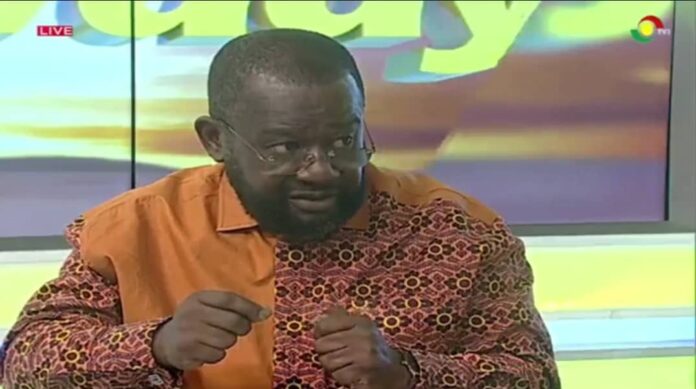Private Legal practitioner and Energy Expert Kwame Jantuah has said that the levy on fuel is a necessary evil.
He says it is important to address the debt situation in the energy sector to solve the erratic power supply (Dumsor).
However, he said that he would have expected the Finance Minister to provide explanations prior to the introduction of the levy.
Speaking on the Key Points on TV3 Saturday, June 7, he said, “Do we have a debt? We have a debt. How do we pay that debt? If this was your own private business, and you have a debt, would you not sit with your family and discuss with them that you have debt to pay, so you want to sell the car?
“As difficult as it is. It [ Fuel levy] is a necessary evil…However, I would have thought that certain explanations would be given before being told of the one Cedi. Where do we stand with ESLA? I would have expected the Finance Minister to go into details. I expected him to also look at the nominees for the president. Do they buy fuel? We say everybody should share to clear this debt, the nominees of the president how do they get fuel, do they buy with their money to buy fuel. How do we get them to also buy fuel to share in this burden
“It is not only one political party that has created this debt. Since we cannot continue to sit in debt. How long is this levy going to stay in the books? Is it going to be till thy Kingdom come? I think we need clarification on that. I expect transparency as to how the money is being used.”
President John Dramani Mahama signed the Energy Sector Levy Act into law on Thursday, June 5.
During the signing at the Jubilee House in Accra, he assured that the money that will accrue from the levy will be used for the purposes for which it will be collected.
“Today, we are signing the Energy Sector Levy Act, all this with the view to trying to eliminate the energy sector debts and stop the crisis in the energy sector and create an energy sector that delivers lower tariffs and better service to our people. I wish to pledge to the Ghanaian people that we are determined to self-redeem the energy sector crisis once and for all and resolve the issue of energy sector debts.
… Although painful it is, to sign this, I was appointed not only to take soft decisions and easy decisions but also to make hard decisions. One of the assurances I gave you is that this money will be used exactly as it is meant for. It won’t be like in the past where the ESLA was collateralised and diverted for other things. ”
He added “Aside from signing this levy, we are also going to reform the power sector so that we are collecting more revenue to be able to pay this debt.
“This Act which has been christened D-vely will not be forever, it is temporary to try and resolve our crisis in the power sector.”
President John Dramani Mahama has defended the government’s decision to impose a new GHS1 fuel levy, describing it as a “difficult but necessary” measure to rescue Ghana’s heavily indebted energy sector and prevent further power crises.
Speaking at the Jubilee House on Wednesday, June 4, during the presentation of the final report of the National Economic Dialogue 2025, President Mahama acknowledged public concerns over the levy but stressed that the move is essential for securing the country’s energy future.
“This decision, though difficult, is necessary and justifiable,” the President stated. “It is part of a broader strategy to liquidate debt and stop the bleeding in the power sector.”
According to President Mahama, the energy sector currently carries over US$3.1 billion in debt, with an additional US$1.8 billion required to finance fuel procurements needed for uninterrupted thermal power generation in the coming months.
“If left unaddressed, this situation significantly threatens national productivity and industrial growth,” he warned.
The levy was passed by Parliament on Tuesday as part of the Energy Sector Levy (Amendment) Bill, 2025, under a certificate of urgency.
It imposes a GHS1 tax on every litre of fuel sold in the country.
President Mahama said the measure follows recommendations from the National Dialogue to take bold action to solve the long-standing energy crisis.
He assured that the estimated GHS5.7 billion in annual revenue from the levy will be ring-fenced and not lodged in the Consolidated Fund.
“Funds from this levy will not be subject to the hazards of the consolidated fund,” Mahama said. “They will be regularly audited, with reports made public to ensure transparent use.”
Read Also: ECG owes GHS 67 billion as of March 2025 – Energy Minister Jinapor
The ring-fenced funds will be used specifically to:
- Pay down legacy energy sector debts,
- Finance critical fuel purchases, and
- Prevent future power shortages.
President Mahama concluded by urging Ghanaians to support the policy as a responsible and forward-looking solution to one of the country’s most urgent challenges.












